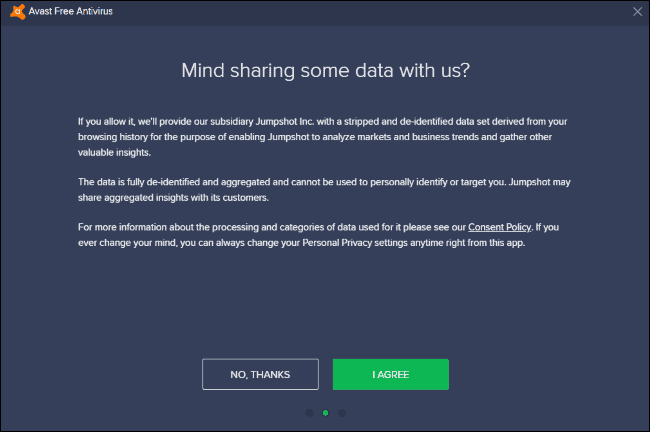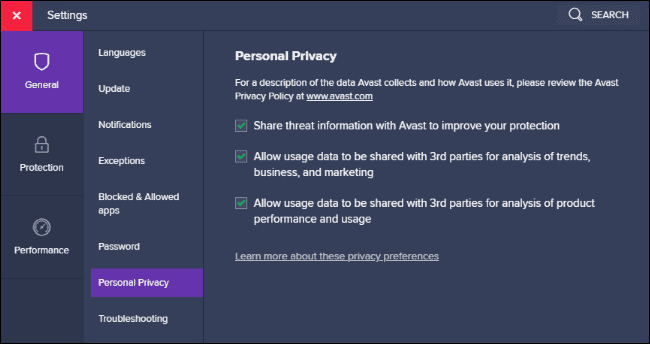Antivirus they steal? Avast collects the browsing history of its users and sells them data to third parties, according to joint research of PCMag and Vice. This is the latest example of a free antivirus software that collects data. Of course this free antivirus should also save some money.

Are you using Avast antivirus? By default, Avast collects web browsing activity and offers it to marketers through an affiliate named Jumpshot. Companies that purchase the data collected by the Avast app can view the full “clickstream” data to track what Avast users are doing online.
Here's how Michael Kan presents it at PCMag:
The data collected is so detailed that customers can see the individual clicks that users make during their browsing periods, including up to a millisecond. And while the data collected is never associated with an individual's name, email, or IP address, each user history is assigned an identifier called a device ID.
Avast, on the other hand, says the data is "anonymous", but PCMag and Motherboard say they have been able to link it to individuals. For example, if you know which Amazon user purchased a particular product in a given second on a given date, you can identify the "anonymous" person and then check more browsing history.
If you have installed Avast with the defaults settings, your browsing history is sold to advertisers through Jumpshot. This data is not collected through the Avast browser extension, but through the main Avast antivirus application.

When you install Avast, you will see a question asking if you want to share your data. Most people who click on "Agree" probably did not realize that they agreed with the behavior described above.
If you have Avast installed, open the application and follow the path in the menu Settings - General - Privacy. From there you can control what data is collected and shared by the application, and of course you can turn off data sharing options.

In October 2019, the creator of the Adblock Plus extension, Wladimir Palant, described how many Avast browser extensions collect and transmit data from the browsing history. The expansion of the AVG app did the same thing - and this should come as no surprise, since Avast bought AVG a few years ago.
Η Google και η Mozilla αφαίρεσαν αμέσως τις επεκτάσεις του προγράμματος περιήγησης από τις σελίδες Chrome Web Store και Mozilla Addons αντίστοιχα, μέχρι να κάνει τις απαραίτητες αλλαγές η Avast. Τα add-ons είναι και πάλι διαθέσιμα ενώ η Avast φαίνεται να είναι πιο “διαφανής” στην Privacy Policy her.
(Google is trying to protect its users from third party data collection, the joke of the day).
Free antivirus software should be profitable, so it should come as no surprise that companies like Avast have turned to collecting and generating revenue from their customers' data.
Free antivirus software is no longer "free". Many antivirus companies change the default search engine by changing the browser homepage and incorporating additional software "offers" to their installers. Today, many other antivirus applications can track you and possibly sell that data.
If you do not like these use Windows antivirus, but still do not be sure that data does not leave your computer.






